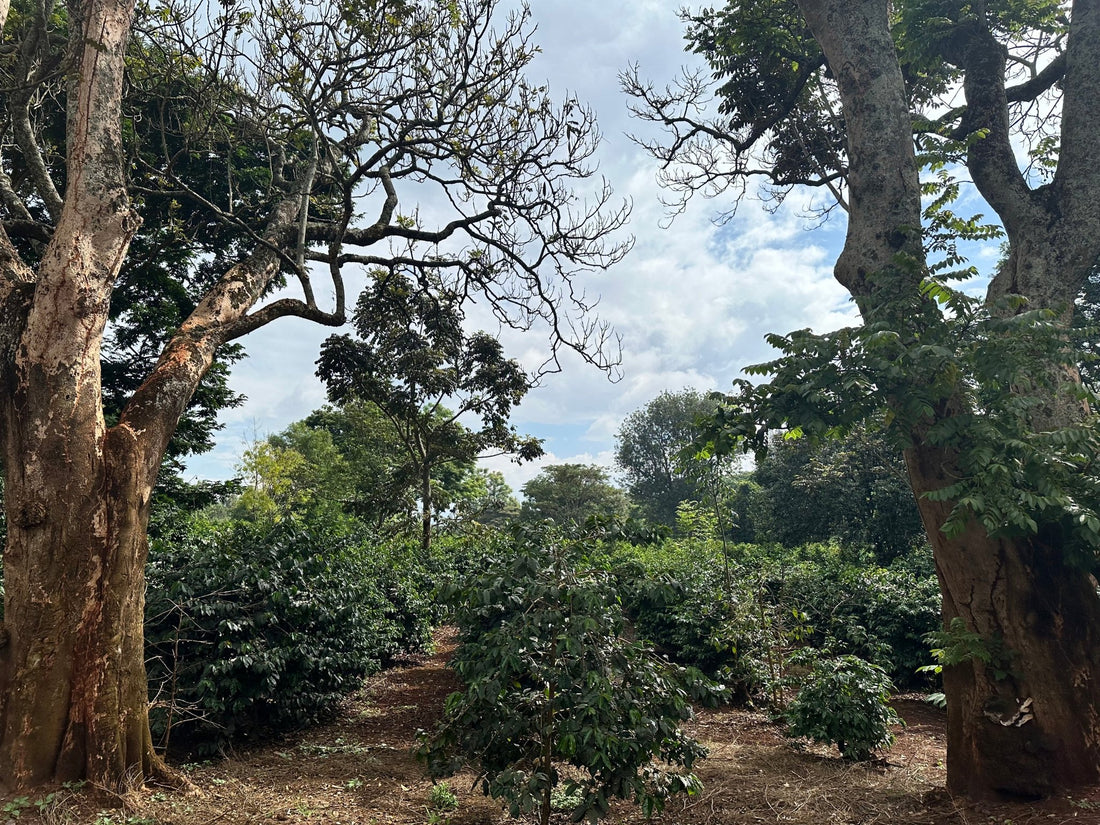
Sustainable Coffee Farming
Brewing a Better Future: The Story of Sustainable Coffee Farming
In recent years, sustainable coffee farming has emerged as a pivotal force in the global coffee industry, emphasising environmentally friendly practices and fair trade principles. This informative exploration delves into the diverse practices employed by sustainable coffee farmers, the substantial benefits reaped from such methods, and the inherent challenges faced on this transformative journey.
In contrast to traditional non-sustainable methods of coffee farming, sustainable practices represent a significant departure from conventional approaches that often prioritise short-term gains over long-term environmental and social well-being. Traditional farming methods frequently rely on heavy pesticide and synthetic fertiliser usage, leading to soil degradation, water pollution, and harm to surrounding ecosystems. Clearing land for sun cultivation displaces natural habitats, contributing to biodiversity loss. Additionally, conventional farming may perpetuate unfair labor practices, as farmers often face volatile market conditions and insufficient compensation for their efforts. In stark contrast, sustainable coffee farming prioritises ecological health, employs organic cultivation techniques, and integrates shade-grown methods to preserve biodiversity. By embracing fair trade principles, sustainable farming ensures equitable compensation for farmers, fostering resilient and thriving coffee-producing communities. The shift towards sustainability not only mitigates environmental impact but also promotes the long-term viability of the coffee industry while addressing socio-economic challenges inherent in traditional non-sustainable practices.
Sustainable Practices in Coffee Farming
-
Shade-Grown Coffee: Defined by its cultivation under a canopy of diverse tree species, shade-grown coffee promotes biodiversity, offers habitat for wildlife, and reduces the need for synthetic inputs.
-
Organic Farming: Organic coffee farming excludes the use of synthetic pesticides and fertilisers, focusing instead on natural processes. This approach not only enhances the quality of the coffee beans but also minimises environmental impact.
-
Water Conservation: Acknowledging the substantial water requirements of coffee plants, sustainable farmers adopt practices like rainwater harvesting and efficient irrigation to conserve water resources.
-
Fair Trade Practices: Fair trade certification ensures that coffee farmers receive fair compensation for their produce. This fosters economic stability and allows them to reinvest in their communities.
Savoring the Benefits of Sustainable Coffee Farming
-
Environmental Preservation: Sustainable farming practices contribute to the preservation of ecosystems and biodiversity, mitigating the environmental impact of coffee cultivation.
-
Premium Quality Beans: The meticulous care involved in sustainable farming often translates into superior quality beans, characterised by a nuanced flavor profile and distinct taste.
-
Community Empowerment: Fair trade principles empower coffee-producing communities by guaranteeing fair compensation, enabling them to improve local infrastructure, education, and healthcare.
-
Climate Resilience: Sustainable farming practices enhance the resilience of coffee cultivation to the adverse effects of climate change, ensuring a stable and high-quality coffee supply.
Navigating Challenges in Sustainable Coffee Farming
-
Financial Investment: Transitioning to sustainable practices may necessitate significant initial financial investments, posing challenges for smaller, independent farmers.
-
Market Access: Some sustainable farmers face difficulties accessing markets that adequately value and compensate their efforts, hindering the widespread adoption of sustainable practices.
-
Educational Hurdles: The adoption of sustainable techniques requires education and training. Overcoming the learning curve is essential for farmers to successfully implement and benefit from these practices.
Contributing to Change: Consumer Actions
-
Choose Certified Coffees: Consumers can support sustainable practices by selecting coffees certified by reputable organisations such as Rainforest Alliance, Fair Trade, or Organic.
-
Support Local Roasters: Purchasing coffee from local roasters often ensures direct relationships with farmers, promoting fairer compensation and a more transparent supply chain.
-
Advocate and Educate: Raising awareness about the benefits of sustainable coffee farming can drive demand for these products, encouraging more farmers to embrace environmentally friendly and equitable practices.
In conclusion, the trajectory of sustainable coffee farming is marked by a commitment to ecological responsibility and social equity. This journey, while laden with challenges, holds immense promise for transforming the coffee industry into a force for positive change. As consumers, our informed choices and advocacy can play a pivotal role in shaping a sustainable future for coffee cultivation worldwide.